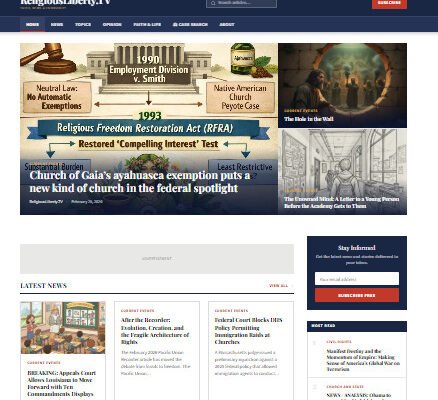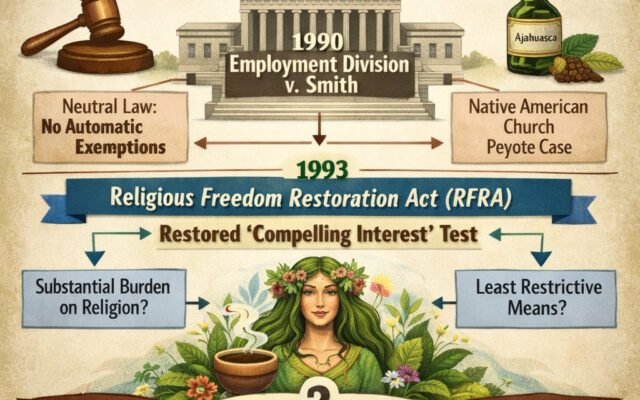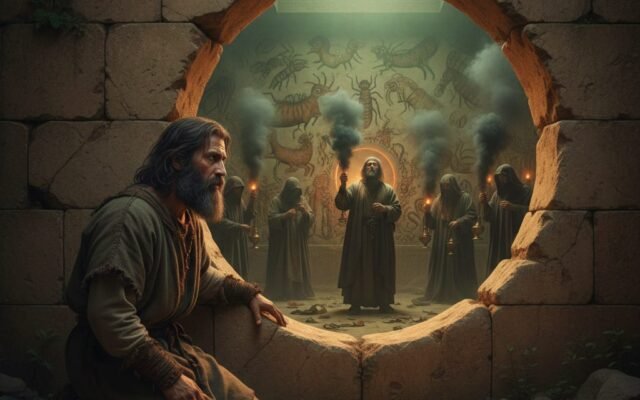
Advertisement
Latest News
View All →
Current Events
Service with a Purpose
If you want to end war and religious persecution, you don't start with a debate; you start with…
Current Events
BREAKING: Appeals Court Allows Louisiana to Move Forward with Ten Commandments Displays
At ReligiousLiberty.TV, our mission is to deliver the most current news when it happens, ensuring you stay informed…
Current Events
The Unowned Mind: A Letter to a Young Person Before the Academy Gets to Them
Dear Friend, I am going to assume, since you are in college, that you arrived there with some…
Current Events
The Hole in the Wall
By Michael Peabody – There is a passage in Ezekiel that reads less like ancient prophecy and more…
Current Events
Church of Gaia’s ayahuasca exemption puts a new kind of church in the federal spotlight
Church of Gaia, based in Spokane, says ayahuasca is a sacrament in an earth-centered faith. In May 2025,…
Current Events
We Just Rebuilt the Library — And It's Open
ReligiousLiberty.TV You’ve been reading our coverage for years. You know that religious liberty law moves fast — a…
Current Events
Montgomery County Board of Education to allow parental opt-outs from LGBTQ+ books
Federal court enters final judgment following Supreme Court reversal in religious upbringing case A federal judge signed a…
Current Events
Service with a Purpose
By Charles Mills – When the United States military shows up in full force, ready to protect, defend,…

Current Events
Montgomery County Board of Education to allow parental opt-outs from LGBTQ+ books
Federal court enters final judgment following Supreme Court reversal in religious upbringing case
Faith & Life
View All →
Current Events
We Just Rebuilt the Library — And It’s Open
ReligiousLiberty.TV launches a legal case research tool, a searchable archive, and a new way…

Current Events
Church of Gaia’s ayahuasca exemption puts a new kind of church in the federal spotlight
A Spokane ayahuasca church is using a federal religious exemption process built on Congress’s…


Current Events
The Unowned Mind: A Letter to a Young Person Before the Academy Gets to Them
The university will not break your faith dramatically. It will dissolve it politely, one…

